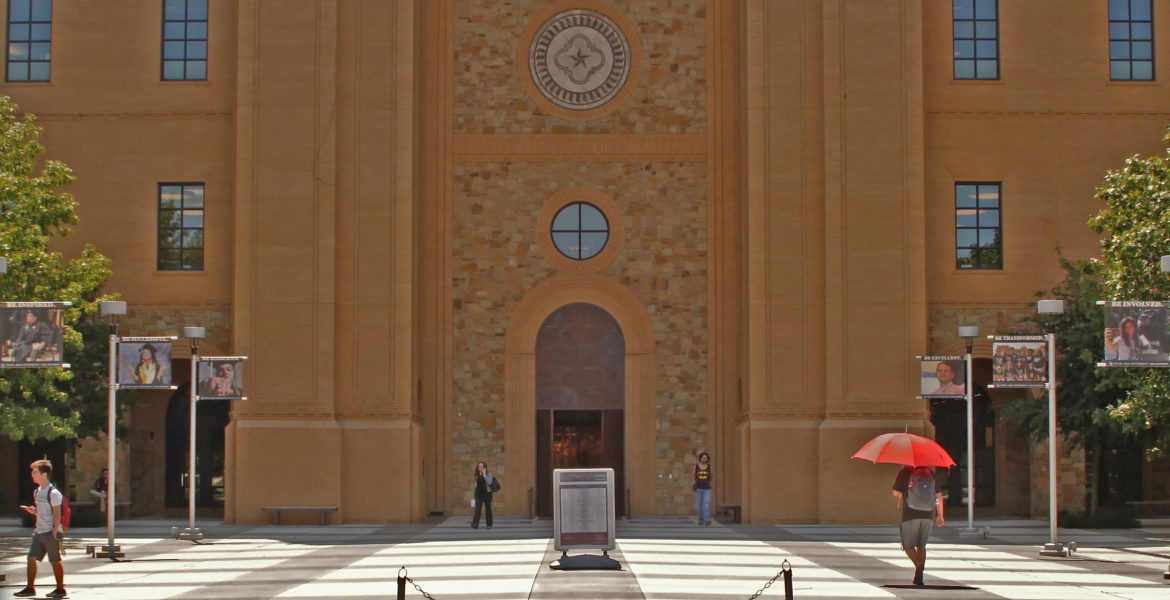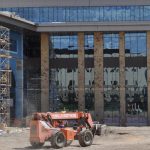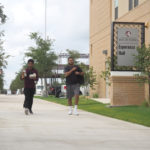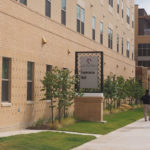Future growth hinges on financial backing

Texas A&M University-San Antonio – known historically as a commuter school – enters the residential college fold with its first on-campus dormitory “Esperanza Hall.”
Students arrived on campus for move-in day on Aug.19, and were greeted with the newly completed dormitory complex valued at $20 million. The project, the largest private agreement in A&M-San Antonio history, is a new partnership between the university and American Campus Communities – an Austin based development and management firm with more than 120 communities, and 80 on-campus housing developments across the country.
“We’re trying to prime the pump. Eventually this area is going to grow”, said William Spindle, chief financial officer of A&M-San Antonio. “There are a lot of things happening all over this southern part of town, that we hope to benefit from for our students.”
The university system’s Board of Regents granted authority on Apr.27 2016, to negotiate and execute a ground lease for the construction of privatized student housing on campus. Construction of the residence hall began July 1 2016, and followed an aggressive timeline for completion.
Public-private partnerships, otherwise known as P3’s, are becoming key components for developing universities. They are not, however, a new concept.
The private-public relationship has “become popular across the United States primarily because the states don’t have the money they used to have to help universities pay for facilities,” Spindle said.

American Campus Communities’ P3 projects start with a partnership with a university via ground lease contracts. American Campus Communities lease the land provided by A&M-San Antonio, cover all costs for building and maintenance, and in return residents pay rent to them.
According to the contract, when certain financial markers are met the excess revenue will go to the university – which could be in the hundreds of thousands. These funds, according to Spindle, would be allocated to furthering infrastructure development on campus.
A&M-San Antonio is the latest in the growing movement of public universities entering into public-private partnerships for student housing, the result of financial burdens imposed by education cuts at the Federal and State levels.
Education spending cuts have been on a steady decline since 2014, compelling universities to consider P3 projects as a solution benefiting both the institution and the industry.
This latest partnership comes as competing higher education institutions around San Antonio, such as University of Texas at San Antonio and University of the Incarnate Word, continue expanding their footprints while renovating their campuses.
“We’ll have 10,000 students…So we have to have infrastructure for that,” Spindle said. “There are two options, you either get more help with the infrastructure or you stop growing.”
As the demand for higher education on the South Side continues to grow, so too must A&M-San Antonio, according to Spindle.
“We’ve got to have infrastructure” Spindle said. “We’ll take it in anyway that we can get it.”
Education infrastructure development is based on how the industrial market is performing, amount of capital available for the systems, and the need for growth.
“The oil market and revenue from oil had significantly gone down, the state was not in the same cash flow situation that it was in years past,” Spindle said. “So for this particular biennium…there was not any money available.”
Whether the university opts for continued privatization, or directly funds projects from a permanent fund is dependent on the Permanent University Fund. University of Texas and A&M University systems use PUFs for a variety of reasons, primarily for development. If the market is not doing well, the funds provided by the PUF are sometimes insufficient to fund expansion projects.
Based on the circumstances facing the university, P3 projects seem to be the best option to offset funding availability.
While the project has been heralded as a safe and convenient option for students, enhancing the student collegiate journey, students who reside in the hall now find themselves in the rural South Side with limited food options.
“The one thing I would like to see improved is a little bit more selection… maybe some extended hours that go later into the evening,” said Marco Del Valle, a freshman biology major, addressing the cafeteria’s short operation schedule.
Esperanza Hall has already contributed greatly to the campus community as students voiced their appreciation of the assurances that come with this new residential living.
“Life on campus is pretty cool. It’s easy when you’re late to class… it’s only ten minutes away,” said Marco Avila, a biology major.
While the growth of the university continues to spur tremendous opportunities for business development on or near campus, the transition from commuter school to residential school is full speed ahead.
“Verano gave us about 700 acres, about 25 acres of their land they’ve sold it to a developer named Bartlett and [they] are going to put some housing on University Way,” Spindle said. “They are going to put some cottages and condos in that area.”
A&M-San Antonio will face growing pains in the months to come, but with growth the university remains committed to fostering a diverse campus community.
More Stories
-
- Featured Series
Video: The first nine weeks of residential life
-
- Residential Life
Esperanza Hall Demands Hygienic Standards from Freshmen





